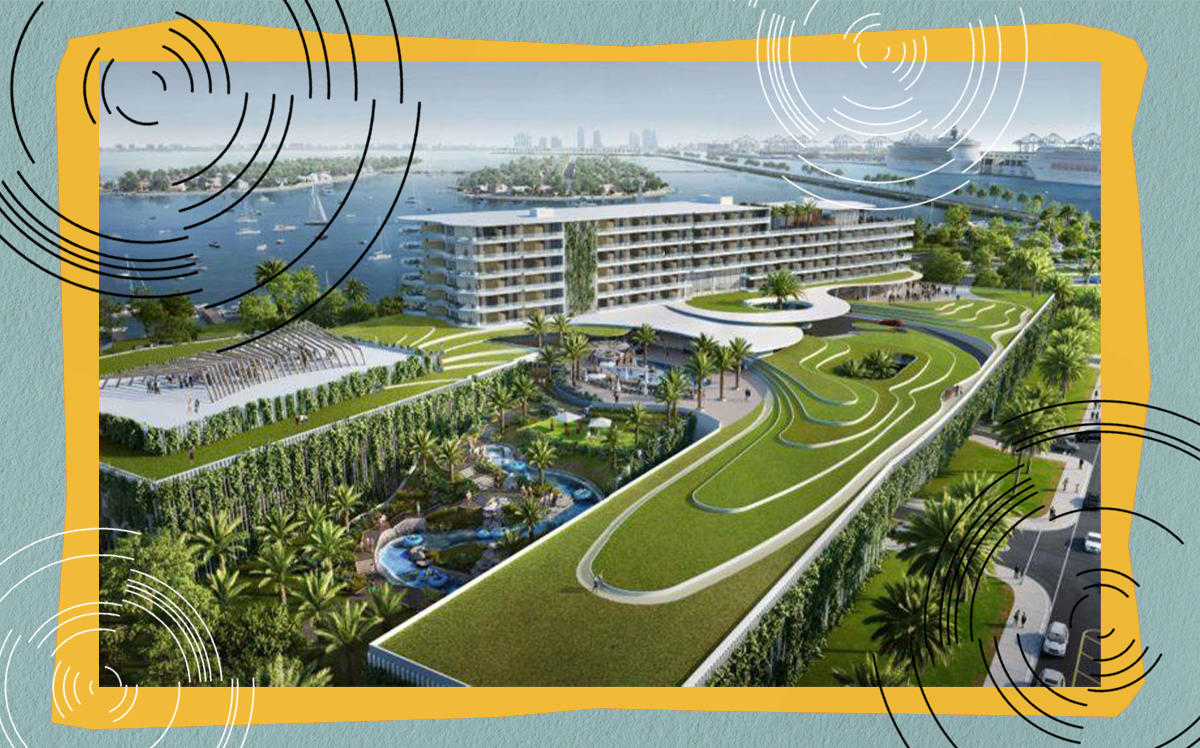Jungle Island’s planned transformation into a lushly-landscaped theme park with a waterfront hotel and new attractions took a major leap forward.
The Miami City Commission on Thursday unanimously approved a development agreement with Jungle Island and a special area plan, or SAP, for 18 acres on Watson Island, the site of the animal-centric tourist attraction. Commissioners also voted to change a portion of Watson Island from “park and recreation” use to “restricted commercial” use.
The rezoning and the SAP, utilized for projects encompassing 9 or more acres, will allow Jungle Island owner ESJ Capital Partners to build a 300-room hotel, add new attractions and redo the existing ballrooms and garage with maximum foliage covering the exterior walls.
The Aventura-based real estate investment firm has a 2023 deadline for obtaining its building permit, which would trigger annual rent payments to the city of $250,000 a year. Once the hotel is built and fully stabilized, ESJ is required to annually pay $1.2 million and 5% of gross revenues.
In addition, ESJ agreed to give the city $750,000 for affordable housing, $700,000 to renovate the Japanese garden on Watson Island, $250,000 for the purchase of a trolley and a yearly $35,000 contribution to the Liberty City Community Revitalization Trust during the 70-year term of Jungle Island’s lease.
In 2017, ESJ acquired Jungle Island for $60 million. The deal included the transfer of an existing lease with the city of Miami, which owns Watson island, and assuming existing park debt to the city, Miami-Dade County and the U.S. Department of Housing and Urban Development.
A year later, Miami voters approved a city charter amendment that waived competitive bidding and allowed ESJ to modify the lease. Jungle Island won an additional 39 years on the lease and permission to build the hotel and new attractions.
The hotel has a maximum height of 130 feet and would be placed directly on top of a new four-story parking garage featuring a rooftop sculpted garden. The garage exterior will also be screened with vines on mesh and green walls that will augment the existing tree canopy at Jungle Island, according to documents ESJ submitted to the city.
The firm intends to create an eco-adventure destination while keeping two existing ballroom buildings that would be partly expanded to hold 40,000 square feet of retail, restaurant and meeting room space.
